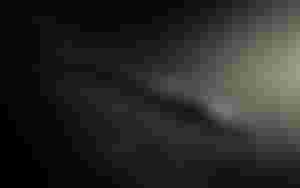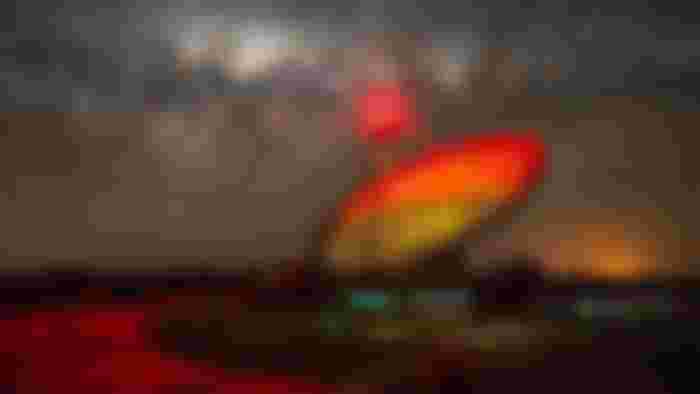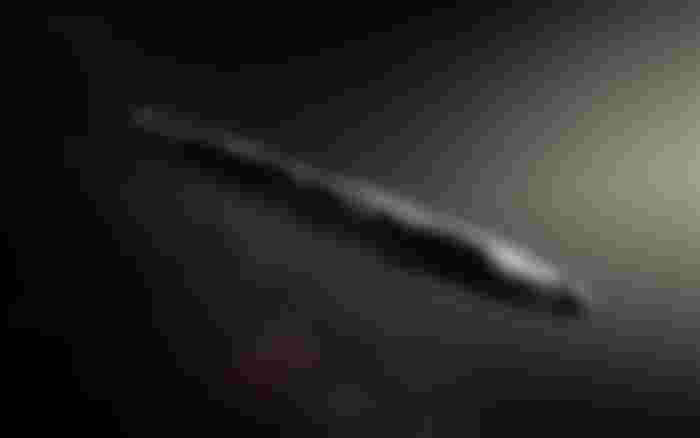I came up with this idea to publish about aliens because i saw again my husband watching videos about the existence of the "aliens" .. So as a curious wife , i asked him if he believe that the aliens do exist , and he answered "yes" . He said that there so many proofs that they exist , but why the scientist don't believe 'em?
Let's see the proofs about them & the story how they live .
-
A former head of Israel‘s military space program claims that extraterrestrialshave made contact with officials in the United States and Israel over the years, but the aliens won’t come out in public because they worry people will freak out .
-
Here on the little space rock we call Earth, humans often wonder whether or not we are alone in this universe. Though that question was not answered in 2020, many discoveries seemed to increase the prospect of extraterrestrial entities existing. Findings on the closest planet to us, in the outer solar system and the far beyond seemed to point to the possibility that other worlds could host organisms ranging from bacteria to technological beings. Perhaps, new results in the coming year will finally reveal who else might be out there.
Is E.T. phoning us from Proxima Centauri?

The answer to weird signals happening in the universe is never aliens, until maybe it is. Earlier this month, researchers announced that they had captured a very mysterious beam of energy in the radio part of the electromagnetic spectrum at 980 megahertz, coming from the closest star to our own. Proxima Centauri, which is just 4.2 light-years away, hosts one gas giant and one rocky world 17% larger than Earth that happens to be in its star's habitable zone, meaning liquid water could exist there. The unexplained signal reportedly shifted slightly while it was being observed, in a way that resembled the shift caused by the movement of a planet. Researchers are excited but cautious, explaining that they will need to figure out if more mundane sources, such as a comet, hydrogen cloud or even human technology, could be mimicking an alien signal, and that it will likely take time before they know one way or another if E.T. is phoning us.
Alien bacteria might live in the clouds of Venus .
Astrobiologists were a-twitter with anticipation and skepticism in September when news broke of potential evidence of life in the upper clouds of Venus. The announcement pointed to the presence of phosphine, a rare and often poisonous gas that, on Earth at least, is almost always associated with living organisms. With its hellish surface temperature, outlandish pressure and sulfuric-acid clouds, Venus has long played second fiddle to the seemingly more potentially habitable Mars. But a team aimed both the James Clerk Maxwell Telescope in Hawaii and the Atacama Large Millimetre/submillimetre Array in Chile at Venus and picked up phosphine's signature in a Venusian cloud layer with downright Earth-like ttemperatures and pressures. Terrestrial bacteria are known to thrive in some pretty tough conditions, making the biological explanation a not unreasonable one. The research team doesn't claim that it is airtight evidence of space bugs, and many in the community aren't quite convinced, but if nothing else it will mean more funding in the hunt for life in unlikely places.
'Oumuamua could still be an alien artifact .

Two years ago, scientists spotted a cigar-shaped object hurtling through the solar system. Dubbed 'Oumuamua, the entity is considered by most to be an interstellar comet flung out from around another star. But close observations showed that 'Oumuamua was accelerating, as if something were propelling it, and scientists still aren't sure why. Avi Loeb, a Harvard University astrophysicist has proposed that, instead of a comet, the interstellar visitor could have been an alien probe pushed by a lightsail — a wide, millimeter-thin piece of material that accelerates as it's pushed by solar radiation. Other scientists have thrown cold water on Loeb's idea, pointing out that hydrogen ice could have melted off the object in a way that was similar to a rocket engine or other propulsion method. But in August, Loeb fired back, writing in a study stating that hydrogen ice is very easily heated, even in the cold depths of interstellar space, and should have sublimated away before 'Oumuamua reached our system. It seems the debate might go on for a little longer at least.
Navy declassifies UFO videos but don't believe the hype.

A fair number of Earthlings don't care what ambiguous evidence scientists come up with to show that aliens are out there. They are convinced that we've been visited by technological beings many times, pointing to stories about UFOs and alien encounters (pretty much all of which have been debunked). True believers received a boost in April when the U.S. Navy released footage captured by pilots that showed odd wingless aircraft traveling at hypersonic speed, looking for all intents and purposes like bizarre alien machinery. Despite the existence of such videos, people should still be wary, argued freelance journalist Sarah Scoles in her book "They Are Already Here: UFO Culture and Why We See Saucers" (Pegasus Books, 2020). After deciding to look into the Navy evidence, Scoles was unable to determine if it really showed alien aircrafts. But she found a much more human story by speaking to leaders in contemporary UFO culture and discussing our very basic need to believe in something beyond ourselves.
Earth bugs breathe hydrogen, maybe aliens do too
Most Earthlings require oxygen to survive. But oxygen isn't common in the cosmos, making up about 0.1% of the ordinary mass of the universe. There's far more hydrogen (92%) and helium (7%), and many planets, including gas giants like Jupiter and Saturn, are made mostly from these light elements. In May, scientists took E. coli (a bacteria found in the guts of many animals, including humans) and ordinary yeast (a fungus used to bake bread and make beer) and tried to see if they could live in different environments. Such microbes are already known to survive without oxygen and, when placed in a flask filled with either pure hydrogen or pure helium, they managed to grow, albeit at slower rates than usual. The findings suggest that when searching for organisms elsewhere in the universe, we might want to consider places that don't look exactly like Earth.
We should be open-minded as we search for life elsewhere.
The human brain has plenty of constraints. We are misled by cognitive biases, optical illusions and inattentional blindness to things we don't expect to see. One question that has always dogged research into alien creatures is whether or not we could recognize life that is so different from what we encounter here on Earth. Scholars have long urged us to expect the unexpected, trying not to let theory too heavily influence what we count as significant. Life on other planets might not leave the same biological signatures as terrestrial organisms, making them difficult to spot from our vantage point. And, as Claire Webb, an anthropology and history of science student at the Massachusetts Institute of Technology, told Live Science in January, we must train ourselves to "make the familiar strange," looking at ourselves through an alien lensin an effort to constantly reexamine our own assumptions. That way, we might be able to better understand ourselves through the eyes of another and perhaps meet creatures on other worlds on their own terms rather than ours.
-
So what are your thought's ? Leave a comment if you satisfy about the posibility that aliens exist , do you believe or not ?
Thankyou for reading :)


